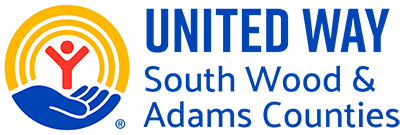United Way's 211 Guidelines for Inclusion in the Database
United Way’s 211 database is used to catalogue an array of community services, provide information on these resources to the community and to connect people with needed programs and services. In addition, the database may be used by community planners to document available services, identify gaps in services, and to assist in community resource mapping and needs assessment activities.
The following agencies/ organizations may be eligible for inclusion in the database file. Non-profit agencies providing health, employment, education, social service, recreation or legal or consumer protection services.
- Governmental (public) agencies providing health, employment, education, social service, recreation or legal or consumer protection services.
- Organizations (such as churches and social clubs), which offer any of the above services to the community at large.
- Self help support groups, which do not charge a fee for profit purposes.
- Advocacy groups offering human services to the greater community and not confined to their own membership.
- Professional groups providing assistance in the identified service areas.
- Non-profit or governmental hospitals, health clinics, and intermediate care homes.
- Organizations located outside of Wood County that provides a service to residents which is not available locally.
- Toll-free telephone services related to the identified service areas if local area residents can access them. (1-800)
- For profit*, proprietary agencies if they offer a service not adequately provided by the non-profit sector of the service is offered either free or with a sliding fee scale.
- Organizations* offering services parallel to a non-profit service to which clients are referred and fees paid by a government agency (ex. Home health care or homemaking services to qualified clients that are reimbursed by Medicare and/ or Medicaid.)
- Local, state, and national elected officials.
The eligible for-profit agencies must be licensed (if applicable) and provide current certificate of licensure and evidence of professional liability insurance upon application.
The following agencies and programs are ineligible for inclusion: Private for-profit service providers unless they meet the inclusion criteria of 4, 10, and 11 above.
- Organizations providing services only to members of certain group or affiliation (counseling available to a group’s members only.)
- Churches that offer no special community-based service components.
- Schools and vocational training programs other than those that are public or non-profit.
- Any organization, which promotes or delivers illegal services.
- Organizations that have been in existence less than one year unless they meet one of the following criteria:
- Affiliation with a large, well-known national organization (ex. Salvation Army, Red Cross, etc.)
- Provides a unique, much needed service not otherwise provided in the community.
- Organizations that violate local, state, or federal laws or regulations.
- Organizations that misrepresent their services in any way.
- Organizations that deny services or engage in discriminatory practices on the basis of any protected class as defined by state or national law.
Appeals Process:
An organization may appeal a decision to be included or excluded in United Way’s 211 database by contacting the program director. If the organization is not satisfied with the outcome of the appeal request, the organization may provide a request for review to the 211 Wisconsin Operations Council group. As the final step, an appeal determination can be brought before the 211 Wisconsin Executive Director.
